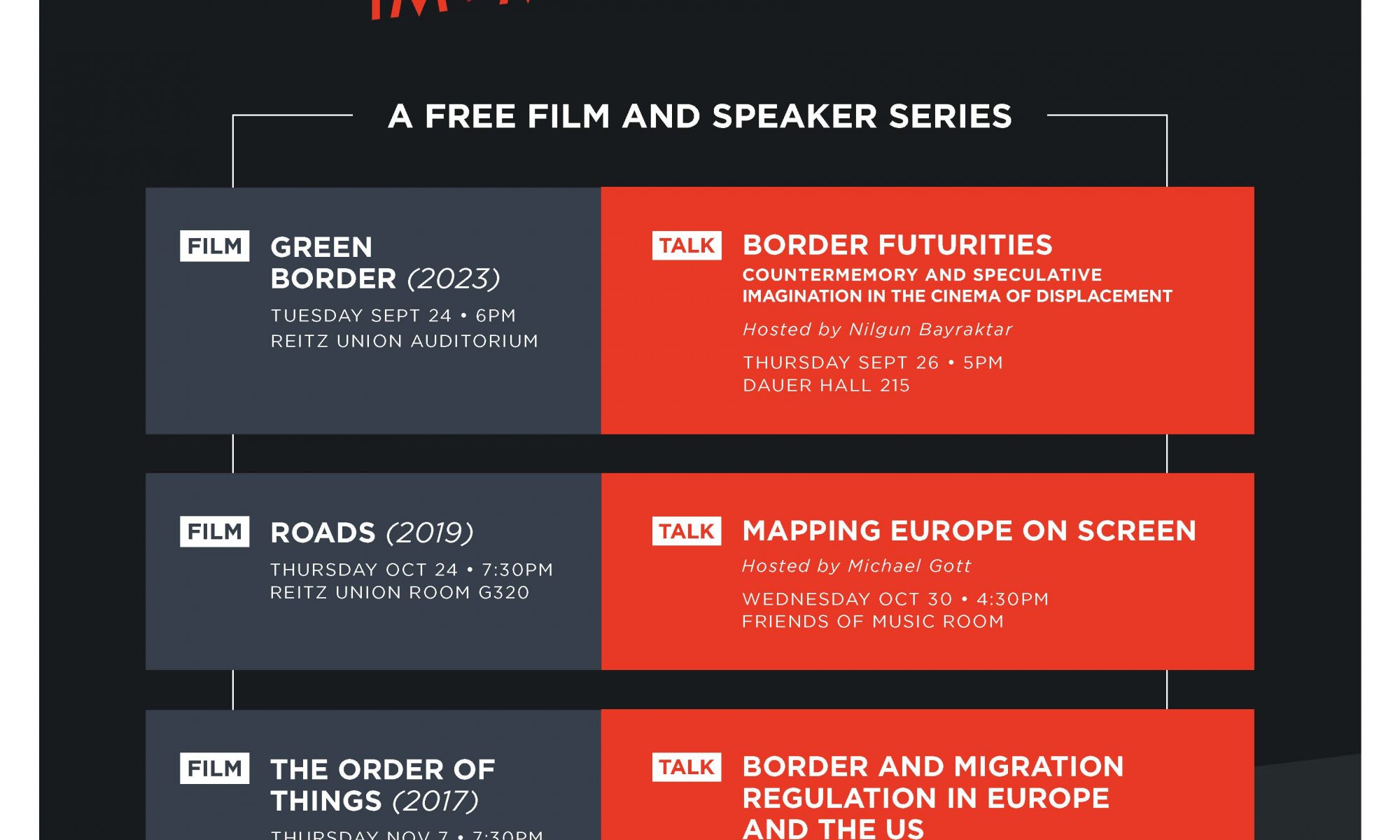This semester, Professors Holly Raynard and Esther Romeyn, in conjunction with the Center for European Studies, are hosting a series of events on migration and im/mobility in Europe. The Free to Move series consists of three film screenings and three talks, presented by academics. Each of the films is paired with one of the speakers and will be screened a few days before the associated talk. The events are offered in pairs as a way to enrich attendees’ understanding of the talks, but it is not necessary to attend both events in a set in order to fully appreciate the talks. The films in this series were picked due to their diversity in thematic and cinematic approach. This event series has a large focus on European culture and politics, but the topics explored in the series impact people globally. These events can be beneficial to those in all disciplines because it is important to think critically about how images and depictions frame issues to influence the public.
The first film in this series, “Green Border,” was screened on September 24 and the associated talk by Nilgun Bayraktar, “Border Futurities: Countermemory and speculative imagination in the cinema of displacement,” was initially scheduled for September 26. Due to Hurricane Helene, this talk was postponed and will be rescheduled for a later date, yet to be determined. Bayraktar is a scholar of film and visual culture, and her work focuses on intersections between cinema, art, and cross-border mobility. Bayraktar’s talk will examine how film and art conceptualize and portray refugees, especially in the context of the refugee “crisis” in Europe.
“Green Border” explores the conflict at the Belarus-Poland border in 2021 by following displaced families at the border, the aid workers helping them, and a Polish border guard. The film challenges the value system surrounding the right to asylum in the European Union. In this case, the Belarusian government pushed migrants over the Polish border into the EU and then the Polish government, on behalf of the EU, implemented push-backs and a zone of exclusion around the border in order to prevent their entrance. “Green Border” brings visibility to the migration policies implemented all across Europe and situates them in continental Europe, a contrast to the typical externalization of the border conflict. The film is over two hours long and is a very raw representation of the situation. It was, at times, hard to watch and leaves viewers feeling weary. For any viewers who may have been put off by the intensity of “Green Border,” the other films in the series are not as heavy. The screening of this film has already taken place, but the associated talk will still take place later in this semester.
The next set of events in the series was a screening of the 2019 film “Roads” and a talk by Michael Gott. The film is a classic Road movie and explores how mobility is differentiated based on who you are and where you come from. “Roads” follows a more traditional feature film format and shows cinema’s potential for oversimplifying the difficulty migrants and refugees face. Michael Gott’s work also focuses on film and media studies as well as border and mobility studies. His talk, “Mapping Europe on Screen,” took place on October 30 in the Friends of Music room.
The final set of events is a screening of the 2017 film “The Order of Things” and a talk by Gallya Lahav. “The Order of Things” focuses more on the policy making angle than the experience of the migrant. This film explores the externalization of migration policy and the way that the ‘othering’ of the issue impacts citizens’ psyche. Gallya Lahav will be discussing her book Immigration, Security and the Liberal State: Managing Migration in Europe and the United States, which discusses the securitization of migration and how that has allowed democratic governments to involve non-central state actors in the migration process.
To see the full series of events visit the CES calendar!
(Blog written by: Lillian McCullum)
